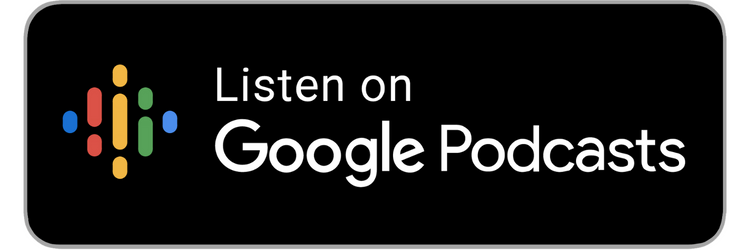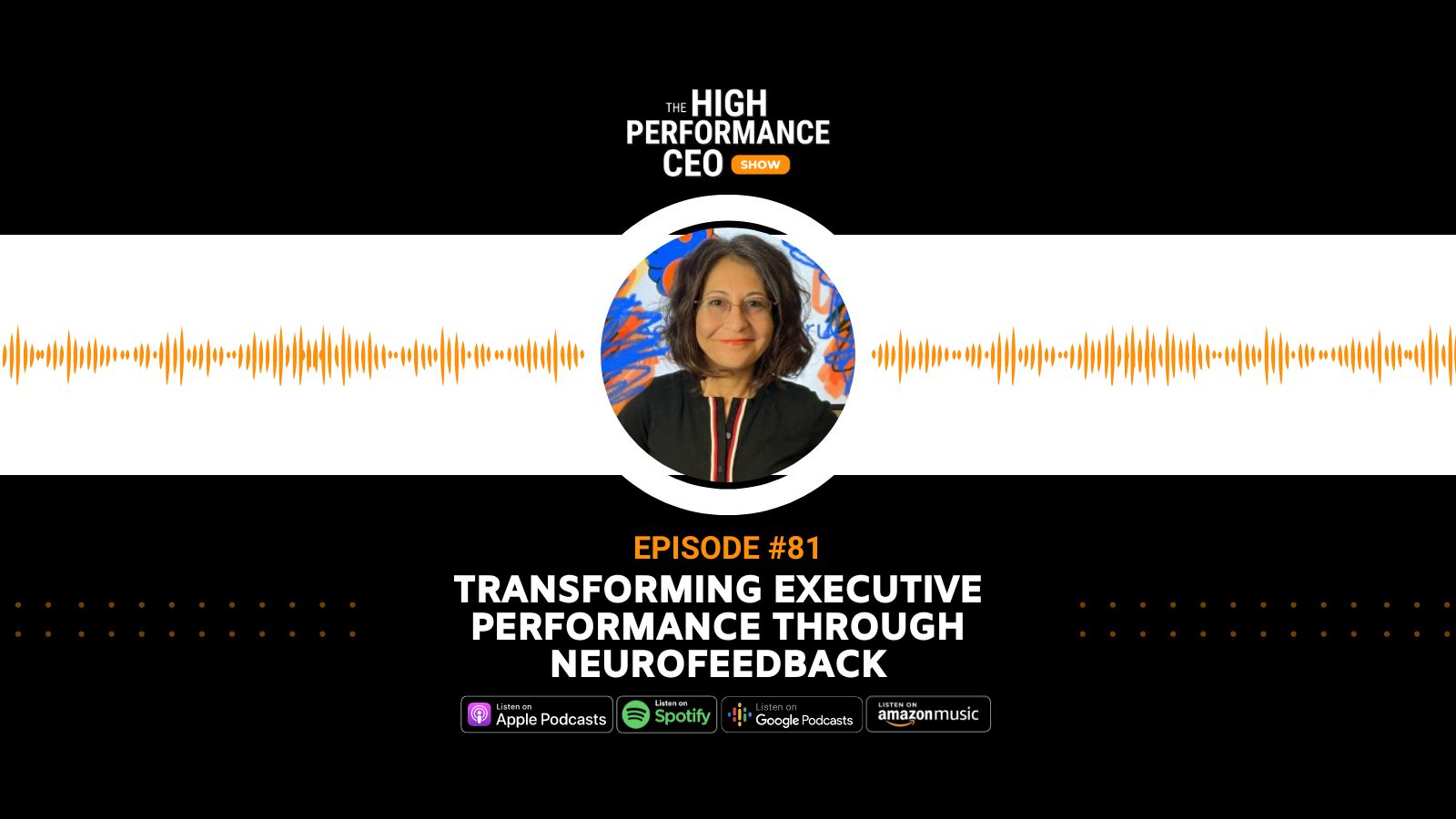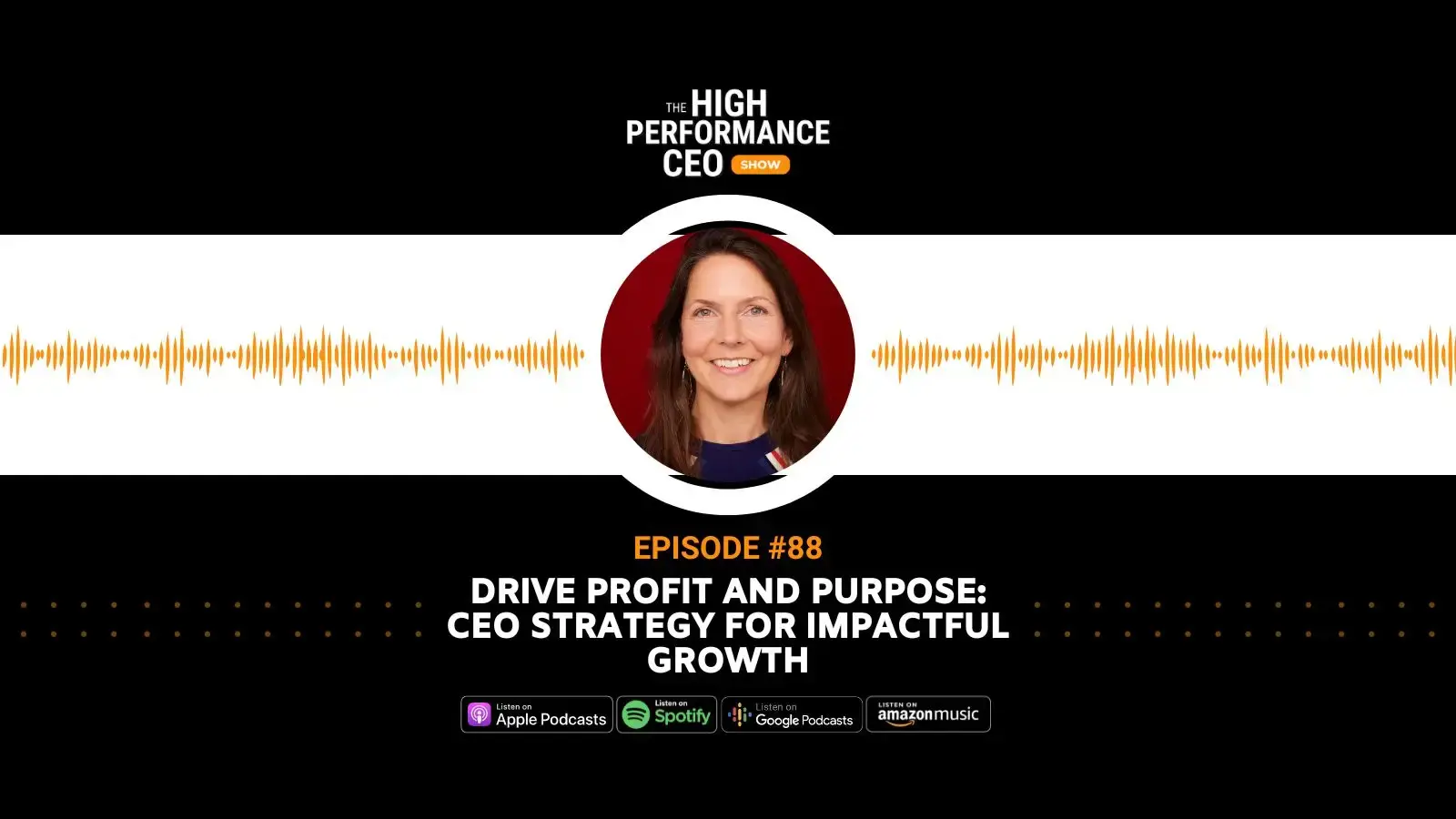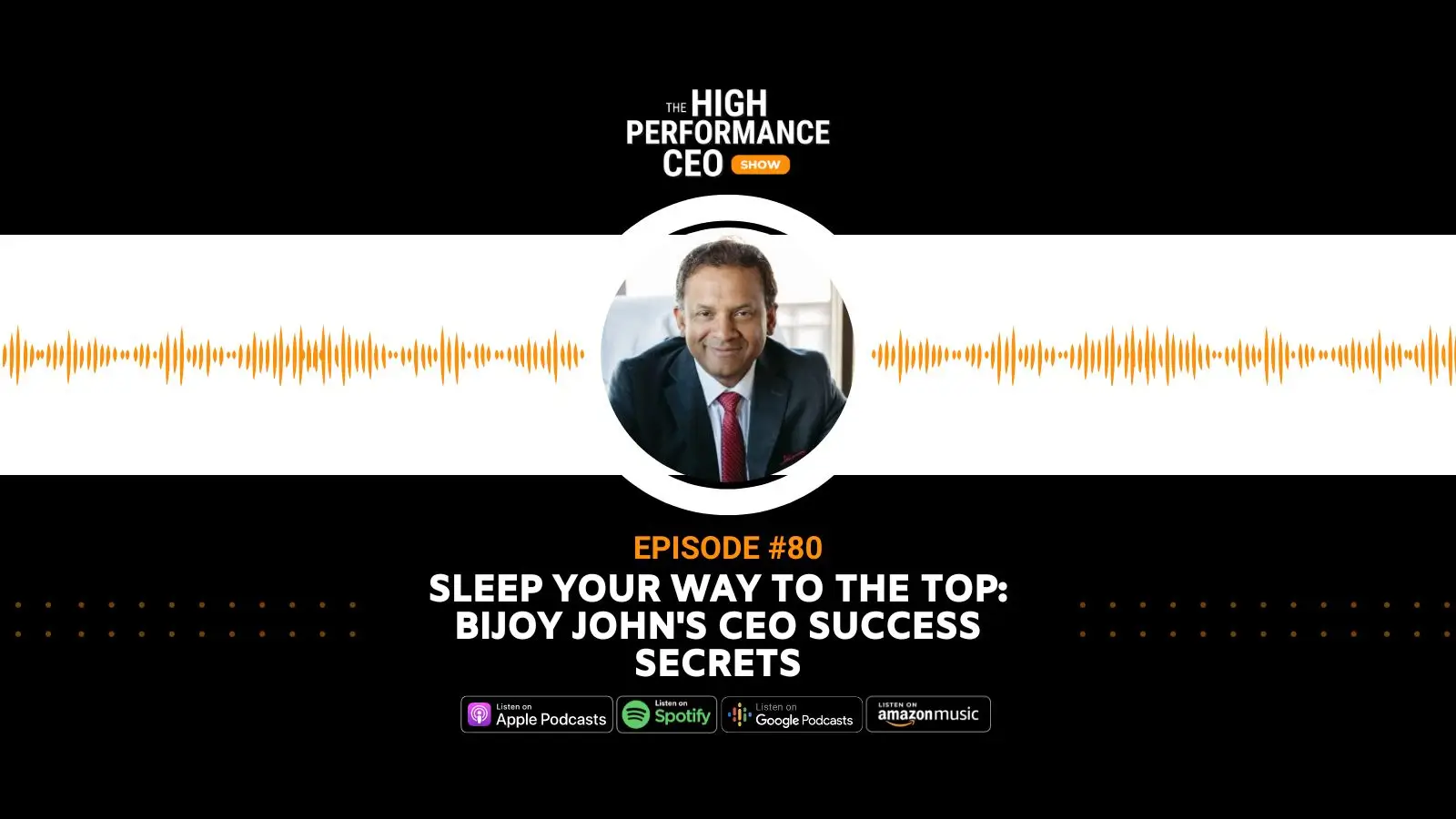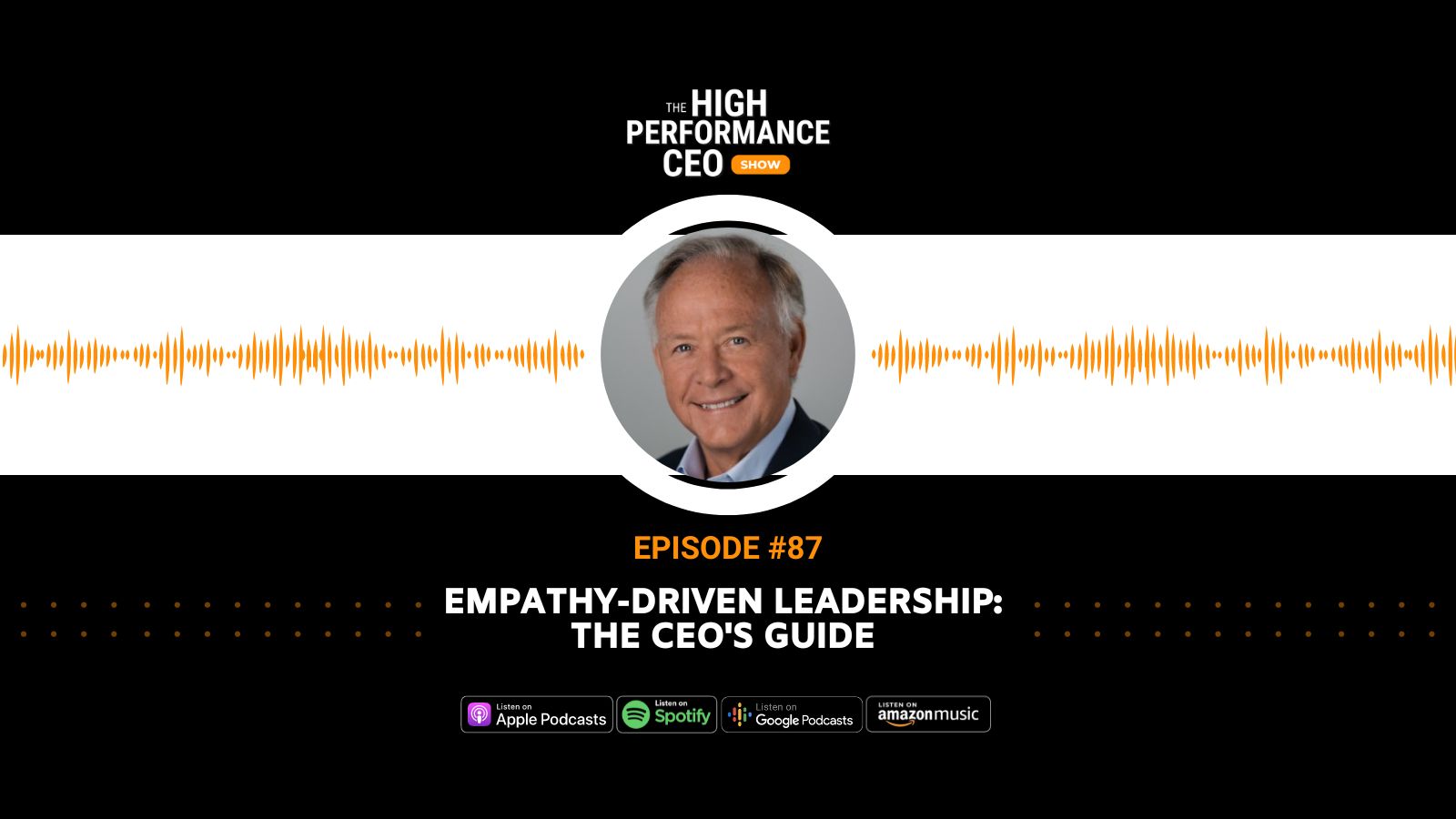
Episode Summary:
Listen to Joe Davis as he shows how real care changes leadership. He gives CEOs simple tips to use empathy to improve their teams' work and unity. Joe knows how to create a place where leaders and teams work well together. This guide helps leaders make a big difference with empathy.
About Joe Davis:
- Extensive Leadership Coaching Experience: Joe has led leadership coaching for over ten years. He has guided many CEOs and top executives, teaching them to lead with empathy.
- Author and Speaker: He wrote many important books on leadership and emotional intelligence. He is known for his engaging speeches on how empathy improves leadership. These talks happen at big meetings and company events.
- Proven Track Record in Team Building: Joe's work shows how his leadership, based on understanding people, has changed company culture for the better. This change has made teams work better together and employees more involved.
Key Takeaways:
- Empathy in Leadership: Learn how using empathy in your leadership helps you connect better with your team. It builds trust and respect.
- Team Cohesion: Learn how leading with empathy makes your team work better together. It helps them face challenges more effectively.
- Enhanced Performance: Empathy isn't just good for team spirit; it actually leads to better team performance and results.
- Leadership Impact: Understand how leading with real care boosts your organization's health and success.
Why It's Important for CEOs Like You
In this episode, Joe Davis, a leadership coach, shares tips for CEOs. He talks about achieving big goals and creating a workplace that attracts top talent. Joe's advice focuses on using empathy to lead better and improve team performance.
Joe discusses how to keep teams united and morale high, especially during uncertain times. He believes empathy makes CEOs more effective, helping teams cooperate and stay driven. In today's world, where company culture and employee happiness matter, empathy is crucial for leadership.
This episode offers practical advice for CEOs who aim to build a respectful culture. Joe uses his experience and real stories to provide tips that leaders can apply immediately. This summary shows why empathy is key to success and encourages CEOs to listen for better leadership in today's challenging business environment.
What CEOs Can Start Doing
- Implement Empathy Practices: Start incorporating empathy into daily leadership routines.
- Build Cohesive Teams: Foster a culture of trust and mutual respect to enhance teamwork.
- Focus on Employee Well-being: Prioritize the health and happiness of your team to boost morale.
- Navigate Change Effectively: Use empathy to lead your organization through change or uncertainty.
- Enhance Leadership Strategy: Adopt Joe Davis’s advice to refine your leadership approach for better results.
Conclusion
This episode with Joe Davis teaches CEOs how to boost team work and culture through empathy. It shows that caring for how employees feel and work together makes a big difference. Steps include listening to your team, making sure they're okay, handling changes well, and improving your leadership. This makes companies do better. CEOs should use these tips to make their teams stronger and their companies more successful.
Chapters
Defining Inclusion in Leadership (00:01 - 05:00) Joe and Sebastian talk about what inclusion means and its importance for leaders and company performance.
Addressing Unconscious Exclusion (05:01 - 11:00) They discuss how exclusion often stems from subconscious biases, not a conscious choice.
Changing Expectations for Leaders (11:01 - 20:00) Joe explains that ideals in leadership are shifting towards understanding employees' humanity. The old command-and-control approach is fading.
Vulnerability and Authenticity (20:01 - 29:00) They show the strength of leaders being open and how it allows others to be free. Pretending to know everything wastes time.
Writing "The Generous Leader" (29:01 - 34:00) Joe talks about why he wrote his book on being a generous leader.
Small Acts of Inclusion (34:01 - 38:00) The podcast ends with a chat on how simple acts and showing interest in employees' lives can make them feel valued and included.
Read the full transcript here
-
Transcript
Sebastian Schieke (00:01.646)
Joe Davis, welcome to the show.
Joe Davis (00:04.056)
Thank you, Sebastian. Thank you.
Sebastian Schieke (00:06.862)
Today we would like to talk about inclusion and it's a very important topic in today's world. We just had a quick pre -conversation and I said, yeah, for me, actually inclusion is a strange concept because in my career running a couple of companies, I had all kinds of people working for me, you know, colored people, homosexual people, young, old, everything, you know, and I didn't need to...
focus on inclusion, I just had an included company, so to speak. But in many organizations, this doesn't work. And this is why inclusion is an important topic, and you are very passionate about that. So this is why today's episode is all about how can we improve inclusion, live inclusion. I mean, you will guide us through, but maybe before we start, you can give us a quick kind of management summary what you do. You are...
Joe Davis (01:05.624)
Okay. Yeah. So, so yeah, basically, yeah. I mean, I've been 37 years almost at Boston Consulting Group, a management consulting firm, as you know, strategy consulting firm. It's actually interesting. I just looked, I think I'm now third or fourth most tenured person out of 35, 40 ,000 people, which says something about, yeah, well, yeah, or I guess we'll discuss what kind of impressive that is. You're chuckling, but it does say something about consulting, you know, it's a, it's a younger.
Sebastian Schieke (01:07.31)
Yeah, maybe.
Sebastian Schieke (01:23.598)
Wow, impressive. Yeah.
Joe Davis (01:34.744)
game I think. Still BCG, actually leaving at the end of this year. I had many roles, of course client service, but most recently led BCG North America and many offices and started businesses in between. So that's me in a nutshell. I always like to say though I have four children, eight grandchildren, number eight was just born. It's very important to me. I know this is about business, but you talked about inclusion. I like to, my family's part of my life, very important part of my life. Yeah. So.
Sebastian Schieke (01:57.998)
No, I mean, yeah, I mean, family is important.
Joe Davis (02:04.184)
So inclusion, you know, it's interesting when you said, because even in the con you can think about inclusion in so many ways, right? I mean, there is the way you referenced it, which is color, race or background or gender identity, et cetera, which is quite important and talked about a lot. I also, there's another part of inclusion I think is important, which especially if you're running a company or not even running the company, I'm just a leader in some part of a company, which is including.
all kinds of different perspectives into what you're doing, meaning people less tender to you, people in different departments, people that, it's not just the junior people. And we can talk about both of these, but I think inclusion, the word's interesting, because people immediately almost always go to the implication of some people are being excluded, which is a problem.
Sebastian Schieke (02:56.846)
Mm -hmm.
Joe Davis (02:58.392)
But to me, it's also a good leader actually includes even a broader set of people into his or her circle to in different opinions, insights, test themselves, et cetera. Both of those parts of inclusion are quite important. And we can go through, we can talk about each of them. I'm quite comfortable to do that.
Sebastian Schieke (03:05.07)
different opinions and yeah.
Sebastian Schieke (03:18.446)
Yeah, no, I mean, from my, I mean, from my, for the public opinion or the topic inclusion, when you think about it, the first thing that comes in mind is, yeah, focus on a diverse workforce. And in terms of different type of people, orientation, race, et cetera. And why is this so important to...
Joe Davis (03:34.168)
Yeah.
Joe Davis (03:42.488)
Yeah.
Sebastian Schieke (03:47.822)
really focus on this? Is there an exclusion or do companies operate in a way that excludes certain types of people?
Joe Davis (04:01.08)
Well, well, that's a loaded question, Sebastian. Legally in many countries, I don't think you can. That doesn't mean people don't select. I'll tell you a bad story about me. Many years ago, my boss at the time, a mentor, he said, Joe, you tend to hire people who are like you. Now he didn't mean white males, but he meant people that are.
Sebastian Schieke (04:08.43)
Yeah, yeah, but exactly.
Sebastian Schieke (04:22.606)
Mm.
Joe Davis (04:24.952)
you know, smart enough, but a little bit more friendly and more personable, not just the hardcore intellectual. You can't just surround yourself with people like you. Now, it didn't mean it negatively, but there's a point there, you know, and the point. So on the part, you know, so I, you know, I'm not going to comment, well, I can comment, but I'm sure in my country, at least, I mean, of course there's exclusion, whether it's really subconscious. I don't know. I don't believe it's blatantly conscious today.
Sebastian Schieke (04:29.23)
Mm -hmm.
Sebastian Schieke (04:37.006)
Yeah.
Sebastian Schieke (04:50.894)
Hmm.
Joe Davis (04:54.296)
we could go into that maybe it's, but subconscious or just the way you've raised the people you hang out with. I mean, I was at a session with Northwestern Mutual the other day, they hosted a conversation around closing the wealth gap on the race side. And one person talked about how we have to get more, you know, high income African -American blacks to actually draw it up. Another one said, no, we have to get more small businesses started, which both mattered. But he said the data on small businesses in the United States, doesn't matter what you're.
If you're a white person, you hire your first five people, they're white people. If you're Hispanic and you hire your first five people, they're Hispanic. If you're black and you hire your first five people, they're black. So you call that inclusion or call it hanging out with people we're comfortable with. I don't know which, but yeah. Like, yeah. And I think the important thing on inclusion, you know, you said why is it important? I mean, I think it's important not to exclude, but.
Sebastian Schieke (05:31.502)
Yeah.
Sebastian Schieke (05:36.526)
It's the same, you're your peer group, I mean, people like money people.
Joe Davis (05:51.192)
You get all that so much data now about the broader, well, the results that come when you have a more inclusive and diverse workforce, right? I don't, I mean, the banks do the studies, the consulting firms do the studies. I don't have, there's so many studies now when you put women in the C -suite, women and men, black in the C -suite, women and African -Americans and Hispanics in the management roles. And I think what has happened, and you just said it, is you attract, you, you,
Sebastian Schieke (06:01.07)
Yes.
Joe Davis (06:20.76)
gather different experiences, different lived experiences. They can connect with different parts of your consumer base, whatever business, the ways you can't. If I'm a white male 66 year old guy, so I have my world. Now I try to think like this, but you know, it's not. So there is definite power when you bring more people to the table with the different views and opinions. Now,
Sebastian Schieke (06:34.958)
Yes.
Joe Davis (06:46.008)
I'll let you ask me a question, but you can bring them to the table, but that doesn't mean they're included. There's a lot more than just having them in the room. Well, I mean, I can go there. I mean, how many times do you hear or you've probably seen it? You're in a room with seven or eight leaders and one woman or two women. If I'm in and the woman says something and then no one reacts, then two minutes later, a guy says the same thing and everyone talks about it.
Sebastian Schieke (07:13.87)
Exactly.
Joe Davis (07:13.976)
It's a bloody stereotype, but we've all seen it or as a you know, it's a cliche over and over I don't think that's called inclusion Actually, that's exclusion
Sebastian Schieke (07:19.726)
Yeah. No, no.
Or it's just they have to fulfill some quotas and then they put someone in, but just to take the box.
Joe Davis (07:33.656)
Yeah, yeah. And that's, I think we're, well, it's a big, big world and a lot of different companies are different, you know, evolution stages, their evolution. I think that ticking the box just to tick the box is probably over. I just, oh yeah, I mean, they still got to do it and it's still happening, but I think it's more that, you know, there's just norms of centuries or, you know, or tens of years, you know, it's talking, not.
thinking the women belong in the room is just something that, you know, 50 years ago they were barely in the room. So it's, that's horrible to say.
Sebastian Schieke (08:03.086)
Hmm.
Yeah. And it's people like, I mean, it's in their subconscious mind that they still believe that thought somehow subconsciously and then the subconscious mind is controlling most of our activities. So controlling our decisions.
Joe Davis (08:15.736)
Yes.
Joe Davis (08:26.872)
Yeah, or you know, right, or you could even, even go a step further. It doesn't matter who you are. I mean, you know, most of people first tend to live in their own head, your point, your subconscious, and what am I thinking? And what are my ideas? And what do I think is right? And you know, really, if you want to be an inclusive leader, you actually have to be start, you've got to get a broad set of people in the room.
But then you actually have to listen to them. You have to give them opportunities to speak. You actually have to understand what they're saying and where they're coming from and what do they know that you don't know. And a lot of people, leaders or not, think they have the answer. Now, I'll tell you, I wrote this book, which is not here nor there necessarily, but I talked to a lot of CEOs and other business leaders and all of these ones who are known to be pretty.
broad -based servant type, generous type of leaders. They're just really good at all. I said, I ask questions and I probe and I ask questions and I probe. I mean, they all know they don't know what they don't know. But that is not, you know, not everybody thinks like that. I mean, you look at my country now on the two extremes and they think each of the other side is so wrong and no one's spending one minute to understand why does the other side think what they think, you know? And so that's the other important. You can bring people in the room, but then you gotta...
Sebastian Schieke (09:39.79)
Yeah.
Joe Davis (09:49.112)
quote unquote, bring them into the room. And if there's someone who's, I mean, I actually also, we talk about race and all that. I also, I'm a big believer in surrounding my tables with, I would bring the finance person that did the spreadsheet into the room, not just the boss's boss who had described it. And they'd say, Joe, it's so scary. You bring us in there and then you ask us a question. I said, well, you did the spreadsheet, so I'd rather ask you. I also was trying to bring them out and I wanted to hear,
Sebastian Schieke (10:08.654)
Ha ha ha ha ha!
Joe Davis (10:18.392)
not just what someone filtered three levels through, you know? But it was very powerful because they said, my gosh, and they got a lot of this feedback. The fact you brought me in the room stunned me. The fact that then you included me, meaning engaged with me and asked me questions, I was so inspired, and this is one of the reasons why he's one include, I was so inspired. I just wanted to push harder for BCG in this case. And nothing.
Sebastian Schieke (10:35.054)
Yeah, and you know, it doesn't cost you anything. It's no effort, it's just easy to do and it has such an impact. Compared to, I mean, giving them more money, okay, it will motivate them for the initially, maybe, but then this wears off. But really, showing them that they matter, that what they produce has meaning and creates, moves the needle.
Joe Davis (10:50.136)
Yeah.
Joe Davis (10:56.472)
Yeah.
Sebastian Schieke (11:04.654)
This is how to motivate people. And yeah, if this is inclusion, then it's an important topic.
Joe Davis (11:10.488)
Absolutely. Yeah, that's it. That's why it's an interesting word because we can start inclusion there. But next thing you know, it's, but I'll tell you, you say it does. It's easy, but it's not easy. If you're a leader who wants to control the narrative in the room, it ain't easy. You can be out of control. If you're someone who someone may challenge you and you don't want to be challenged, well, that's going to be really hard. Or if you're someone who's afraid to admit you don't know, and someone comes up with some insight, you have no idea about what.
Sebastian Schieke (11:22.414)
Yeah. Mm.
Sebastian Schieke (11:37.934)
Hmm.
Joe Davis (11:38.616)
So there's a lot of fear, I mean that's silly. I'll even call the person who wants to be in control, they're probably afraid of losing control, so I'll even define that as fear. That can be a big roadblock, it's quite a roadblock. Well, there's people in the roles, no, no.
Sebastian Schieke (11:44.622)
But can we call them leader? Yeah, they get the name, they've been appointed a leader, but in...
Joe Davis (11:57.816)
Well, I think, no, I think that's the important thing. I mean, you can be a very good technical business person. You can be a very good manager with all the tech. And then are you going to step up into being really a very good leader? And then I think, you know, I call it a generous leader. I use the word servant leader. Are you going to step to the next level? Or actually what you're thinking about is how to make everybody else be the best they can be.
Sebastian Schieke (12:15.022)
Hmm. Yes.
Joe Davis (12:26.2)
And of course, indirectly, you're going to benefit your organization, but more importantly, they're going to thrive, you know? And yes, that's the, that's the, that's the, and there's probably a step above that if we talk for a while, but that's, that's a real, well, real is the wrong word. That is a most holistic leader, I think.
Sebastian Schieke (12:41.998)
And also, I mean, a modern leader. When you look at history of leadership, I mean, in the past, you always associate a leader with, yeah, he's the boss, he has the power, he's tough, you know, he makes a decision, we don't argue with him, he's always right. And nowadays, you cannot be always right. I mean, in fact, I would argue, I love to hire people who are more intelligent than me, because, I mean, they should...
Joe Davis (12:55.512)
Tough.
Sebastian Schieke (13:10.67)
they should know what they do. I don't want to know every detail of what they are supposed to execute. So they should be better.
Joe Davis (13:19.671)
Right.
Sebastian Schieke (13:20.91)
Uh.
Joe Davis (13:22.008)
Yeah, I'm with you. I tell you a funny story. Once I have a mentor who said, Joe, I could put two people, you and this other guy's name was Philip, you know, room, four walls, no door and give you a tough problem. And you'll probably never get out. You don't get out of the room unless you solve it. You probably won't get out of the room. He'll get out of the room every time. But then if I say, OK, now go do it, get it done. He'll never get it done and you'll get it done every time.
But it goes to your point about surrounding, I mean, knowing what you're good at and what you're not, and then surrounding yourself with smarter people, whatever it might be, but surround yourself with all the people that compliment you, which also probably an example of inclusion, if we push this. I think your point though on the, someone else asked me, oh, aren't tough times for tough leaders? I just think the definition of the tough leader has changed. Whether it's as,
cliche is the younger people are just demanding different. And we hear that over and over. And I don't know when they're 35 and have three kids and a mortgage if they'll change, you know, that tends to be, but there is a different expectation as far as leaders who show good values, share their values, you know, there's all that. But I think more importantly, younger people want, you know, the other thing that's happened is, you know, just this whole work life thing is blurred, right? Technology blurred it.
and then COVID put it over the edge. I mean, so now people say, wait a minute, I have to be a person at work and at home. I can't just go be the white shirt, blue coat guy at work. So it's all the time. So now I need a leader who understands that and is going to see me as a human during work too. But you still, you know, the thing is, you know, and actually I think, well, I'll stop right there. So I do think that command and control, the other thing is people can walk,
best people can walk. So someone say, Oh, so what if the command and control leader is really good? Yeah, but the highest talent just quits and goes somewhere else. And the highest talent has a lot of options in our world. Not even I won't even say our country in our world. Um,
Sebastian Schieke (15:24.142)
It's a global workforce now and people can, I mean, I have a global team and...
Joe Davis (15:29.976)
Yeah.
Joe Davis (15:34.712)
Well, that's the other thing. I saw someone when COVID got going, an executive, I think it was in Rhode Island. He said, my gosh, I have to now figure out the Texas labor markets, because I can hire from Texas or people, my employees can say, no, no, I'm going to Texas because it's zero taxes, no state taxes. And I can get more bang for my buck. I don't want to be in your place. He said, I actually, you know, it's not global, but it just changed the world. It's not just who lives in, you know, Rhode Island.
Sebastian Schieke (15:49.742)
Mm.
Joe Davis (16:03.928)
But you know, this, this tough leader, I still think, you know, we don't want to be careful too, because as Joaquin Duado, the CEO of J &J said to me, he said, Joe, you know, you cannot ever forget a leader does have to deliver the outcomes and get the results. That doesn't change. But the sooner, he said, the sooner they get past that it's all about them, the sooner they realize they've got this team and the sooner they'll tap into the, he used an issue where the humanity of the team and leverage all that humanity to drive results.
Sebastian Schieke (16:15.95)
Of course.
Joe Davis (16:33.848)
So you still got to get results. You have to be a good technician. You've got to be a good manager. You've got to care about all the stakeholders, but maybe part of the difference is it's not just the shareholder or the investor, of course, or even just the customer or the clients. It's also the employees and the community at large. So, you know, just some of the ways you are, and you, you know, I was going to say, you're thinking you still have to be decisive. I mean, during COVID, when everything was uncertain, people looked at leaders to make calls.
Sebastian Schieke (16:34.478)
Sure.
Sebastian Schieke (16:44.878)
Hmm.
Sebastian Schieke (16:57.902)
Yeah.
Joe Davis (17:00.472)
Now, if they made them wrong, they looked their leader to be humble enough to say, oh, that was wrong. I will now change because of that. But if you didn't make a call and were a wishy washy leader in the day of uncertainty like that, then everyone was scared. But it was, it was a connected leader, not just the guy sitting this, you know, anyway, the top floor, you know, trying to make up decisions when nobody knew what, where things were going. So I do think the times, the expectations of leaders are changing.
Sebastian Schieke (17:14.222)
Yeah.
Sebastian Schieke (17:28.494)
Yeah, but they also, I mean, leaders have different challenges now than even a couple of years ago. I mean, you mentioned COVID. Now we have all these different conflicts in the world. We have the rise of AI, which is changing everything. And so they are faced with so many challenges and also a workforce which has different requirements. They want to work remote. They have different...
Joe Davis (17:29.656)
of the best, to your point, the best.
Joe Davis (17:44.184)
Yeah.
Sebastian Schieke (17:58.414)
different ideas. So it's quite a tough job compared to it used to be in the past. So how do you think they cope with or what is a characteristic you need to have in order to survive or even strive as a leader in today's time?
Joe Davis (18:20.152)
I think there's, yes, I think you're right on all those things. And of course they change it for the leader, but they change it for the workforce too. Cause I mean, you think about it nowadays, you only can get your news on this thing and you glance at it and you discover the last, the next shooting in my country. And then you're depressed all the sudden. So it's just this anxiety or uncertainty.
Sebastian Schieke (18:24.942)
Hmm.
Sebastian Schieke (18:37.774)
Yeah, I have a tool called Freedom and it basically blocks my news access on the phone.
Joe Davis (18:50.104)
Wow, that's pretty cool. But to your point, I think, so, you know, you could, I'm going to answer your question, but the first thing is this is all the more why you need the broadest set of experiences in your workforce and you need to include them because you cannot cope with all that by yourself. Maybe if you have a small business, I don't think so. Cause then you've got to deal with your customers. I think there's several things. I think, you know, there's one thing which is you have to learn.
Sebastian Schieke (19:01.902)
Yes.
Joe Davis (19:19.064)
figure out how to connect, I say personally and deeply, with your organization, not just as the guy in the ivory tower, but how do I actually connect to them? They feel connected. And then you've got to be really, this is very critical, really good at, we talked about it a minute ago, really listening to learn. What do others know that I don't know? How do I access that? How do I put two and two together? I have this thing I say during consulting, I'll tell my teams, go engage with skeptics.
and uncover the no's and don't assume because the noologist says no, they're just out to block you. They know something that won't work and you want to know that, you know, and then figure out how to solve the note, of course, with them and whatever. So you really have to, and leader today, you know, include to your start the broadest set, work hard on connecting with them and really, really listen to every point of view you can get. And then I do think there's one other thing which is, and this is overused,
But it's one, if people ask me what are the two or three characteristics, this whole, whether you want to say honest or authentic or vulnerable, you can pick a word. I don't care. I mean, vulnerability is a little bit, but you have to show enough humanity that your team gets past their own fears and can unleash themselves. Cause the minute someone says, oh gosh, I don't want to admit I'm wrong. Cause am I wrong? Am I company you get yelled at? Well, then there's stifling, you're stifling whatever insight and creativity they have.
Sebastian Schieke (20:33.614)
Yes.
Sebastian Schieke (20:44.238)
Hmm. Yeah.
Joe Davis (20:48.152)
And you know, if you have a colleague told me a story, he said, I asked him about vulnerability. He said, well, Joe, I struggle. He said, I struggled to admit I didn't know something. He was a black guy and I think he was afraid. You know, there was the stereotypes that go around it and the perception. So, and he said, I used to, if I was in it with the team and I could tell they're getting stuck and I didn't know the answer, I would kind of duck, leave the room or whatever before they asked me, before I had to say, I don't know. Well, yeah, you're smiling already. So.
Sebastian Schieke (21:12.43)
Mm.
Joe Davis (21:17.656)
And he said, one day I said, you know, I don't know either. And he said, so this fresh air went through the room and everything. Oh, he doesn't know. Oh, none of us know. Oh, how are we going to solve this? What are we going to do? And the juices started flowing. So I think that's the, and you look at during, you know, that's the other point. I mean, I like it's overused, but Arne Sorensen, the Marriott CEO Marriott, and if you ever saw that video, he went COVID hit, he did a video to staff and he was dying of cancer. He was bald from it. So he was as vulnerable as one could be.
Sebastian Schieke (21:19.213)
Hahaha.
Sebastian Schieke (21:42.318)
Yeah.
Joe Davis (21:46.872)
just by being, but he talked to the group about, I don't, you know, we're gonna furlough tens of thousands of people, we hope to bring you all back, I have no certainty, the hotels are like 80 % down on occupancy. I mean, he just laid it all out there as himself and the group, I mean, a lot of people had to go be laid off for a while, I don't think they're fired, they're just furloughed.
Sebastian Schieke (22:00.654)
Hmm. Yeah.
Joe Davis (22:11.768)
but the group rallied and there's all this press, you know, there's all this press around what an authentic and vulnerable, but honest description of the times. And then the people rallied. Oh, it's really, yeah, just Arnie Sorensen, Marriott, it's really powerful, very powerful. Now.
Sebastian Schieke (22:18.51)
And yeah, I need to watch this video.
Sebastian Schieke (22:26.958)
I just watched the German version of Shark Tank, you know, and as one of these investors, he's a well -known business person in Germany, very successful, you know, everyone was looking up to him. And in this last episode, he was saying, yeah, I mean, they talked about challenges and hard times he had, and he said, yeah, I had a depression, I was addicted to medication, I can't sleep well at night, and...
Joe Davis (22:34.872)
Ha ha!
Sebastian Schieke (22:56.526)
People just went quiet, you know? But he shared what probably many are maybe partially suffering from, and it shows that these are all humans, and also the big guys, they have their package to carry.
Joe Davis (23:08.92)
Yeah.
Joe Davis (23:19.128)
Oh, that's, that's well, bravo for that person. And you know, a lot of people think, oh my gosh. I mean, I was talking to somebody, was it every me for an article? Yes. She goes, but how, you know, isn't that risky and how do you know when to draw across the line? And, you know, maybe sometimes you don't go too far. Don't start crying in front of a thousand people that don't even know who you are necessarily. Maybe. But, but the fact that you recount that story, you remember that powerfully, not negatively is really a good, strong statement.
Sebastian Schieke (23:19.758)
It's very good.
Sebastian Schieke (23:37.486)
Yeah.
Sebastian Schieke (23:42.862)
Exactly. Yeah, it shows strength. And I would rather trust something like him than someone who's completely ice cold and shows no...
Joe Davis (23:50.424)
Yeah.
Joe Davis (23:57.56)
Yeah, we had a leader speak at one of the BCG worldwide officer meetings a handful of years ago. And this person was talking about, you know, as a CEO, you have to know all the ant, it was the antithesis of what I believe, everything I don't believe in. You have to be strong. You have to have all the ant. I thought, whoa, buddy, I think you're out of touch. Now he was a CEO and maybe his company was, I don't know. But I thought, well, I think the world's going to catch up to you.
Sebastian Schieke (24:17.262)
Hmm.
Sebastian Schieke (24:20.91)
But it often shows that those people have a lot of fears, a lot of uncertainty, not a high level of self -consciousness and...
Joe Davis (24:38.104)
Yeah. EQ and all that. Yeah. No, that's what I think. I think it's mostly driven. Well, mostly driven by fear, but you know, let's be fair. Some people, you know, if you're raised by a family where the men don't cry and be tough and show nothing. So you can't, I mean, that's how the person was raised. So they have to figure out their own way out of that quote unquote trap. You can't, you can't be critical of them, but.
Sebastian Schieke (24:50.99)
Hmm. It's...
Joe Davis (25:04.312)
I think they'll be better leaders as they figure out their own way. I mean, that example I told you, all they had to say was, I don't know. Freedom and I don't know is a pretty easy phrase. That was a lot easier than the story you just told.
Sebastian Schieke (25:11.342)
And how can we know everything? I mean, if you look at how fast the knowledge of the world is duplicating, you know, I think it's now every, I don't know, 12 hours or something like that. I need to look it up. So someone who's saying, oh, I know all the answers, I mean, give me a break, yeah? I mean, I can say honestly, I know a fraction of what is important, the rest I need to ask people, I need to research, but this is just how it is.
Joe Davis (25:26.808)
Oh
Joe Davis (25:42.424)
Yeah. Yeah. No, no, of course. Now, you know, sometimes you might get the leaders who, of course, don't know everything like that, but they think they know where to go. I know the direction and that's okay. You know, actually I even think you need a leader that says, here's where we're going. And here's how I think we'll get there. Otherwise you don't want to follow the guy who's just, yeah. But, but even then I think the best leaders are humble enough or vulnerable or whatever to say, Hey, I picked this path.
Sebastian Schieke (25:48.974)
Hmm.
Sebastian Schieke (25:58.126)
Yeah. You need a vision and a clear direction, yes.
Sebastian Schieke (26:09.806)
Hmm.
Joe Davis (26:12.504)
but I took this turn and that was wrong. We got to go that turn and you know, admit they're wrong and move. And the minute you do that, oh, okay, yeah, you're right, sir. Or they get new information. So, you know, even that, you know, so you got to know somewhere, but the next thing you want to know is never forget you don't know at all and be really ready when new data and information or insights comes in from that broad group you've included. Go back to your start. You're humble enough to say I'm wrong, let's switch. Which I don't think.
Sebastian Schieke (26:13.39)
Yeah.
Sebastian Schieke (26:36.846)
Hmm.
Joe Davis (26:42.36)
I don't know, my experience of someone says, you know, I'm wrong. And let's go that way versus I don't think anyone begrudges the person. It don't think, you know, as long as when they're switching, they're switching to better place. You know, I'll tell an interesting story. When I was like a third year at BCG, there was some, this is just an example of sharing some vulnerability. It was so powerful and so simple. I, there's something I didn't know how to do some analysis or math or something. So I walked down the hall to the partner and.
Said, you know, I thought, well, this I got to admit, I don't know how to do this. I say, yeah, I don't know how to do this. Can you help me? Well, it's funny because he could have reacted a lot of ways. He said, oh, I don't know how to do it either. This person's, you know, seven years. Let's walk down the hall and ask that person because he'll probably know how, you know, you think about as 30, I mean, whatever third year in this company. And what a powerful signal to me. I mean, he could have said, Hey, John, busy, come back and gone and secretly got the answer. Then showed me how he knew.
Sebastian Schieke (27:23.95)
haha
Joe Davis (27:39.064)
He could have thrown me out just because he wanted to. He could have thought I was an idiot, but as Jenny said, I don't get it either. Let's go ask the next guy. I mean, what a powerful message to a newbie. Yeah, that's a real powerful message. Hey, I don't know. We'll find somebody that does. And think how much time we didn't waste. Now it's good. Good thing I had. Yeah. Yeah. And, you know, the good thing I didn't, didn't have, wasn't afraid to walk down the hall and ask it. Cause then we would have really wasted time. That's the other we don't talk about. We haven't talked about.
Sebastian Schieke (27:43.406)
cool. Yes. Yeah.
Sebastian Schieke (27:52.878)
Yeah, instead of pretending and...
Joe Davis (28:08.6)
I mean, you get the best answers with a broad set of people and making sure you tap into everything they know. But you also, I mean, what's the only thing that everybody doesn't have is time, right? And you waste a lot of time if you're trying to pretend you know it all yourself. I mean, I don't really talk about this angle much with people, but time's the most valuable resource, right? Anyway, yeah, yeah.
Sebastian Schieke (28:27.31)
Yeah, yeah, we only have 24 hours a day, yeah. But you wrote this book, The Generous Leader, so you want to share a little bit about what got you to write the book and what is the message?
Joe Davis (28:41.656)
Yep. Well, so, I mean, there's a handful of things that got me to write it. One is I was coming out of leading BCG North America and during COVID, one of my colleagues said, you just have to write about that time and the leadership during that time. Now another colleague said, hey, include other leaders in the story because no one wants to read a memoir. So, you know, and make it just be COVID. Actually, someone from Harvard Press said nobody wants to read about COVID. So that's the longer stretch of leadership time.
Sebastian Schieke (28:52.622)
Hmm.
Sebastian Schieke (29:00.174)
No.
Joe Davis (29:12.024)
So people had said, right, I actually found this list of life's goals that I wrote when I was 15. It's quite interesting for a 15 year old, but on there, one of them said, get something published. I had lost this for 40 years and my wife and I, yeah, my wife and I found it in my, and so I'm okay, that's one. But I think more importantly, I wanted to do my part to, you know, you and I talked about times, you know, the times are different, the expectations are different. There's so much pressures on people. You,
Sebastian Schieke (29:15.438)
Hmm.
Sebastian Schieke (29:20.942)
Cool.
Joe Davis (29:40.92)
You alluded to this mental health crisis, probably globally, I'm sure it is at some level and different degrees. So I wanted to do my part to try to encourage leaders to step up a level into either what I call a generous leader, which I'll define, or a servant leader, people use, or just someone who really listens and includes. And to me, I think of a generous leader as someone who freely gives of themselves without expectation.
Sebastian Schieke (29:42.638)
Hmm, yeah.
Joe Davis (30:10.136)
of personal gain so others can develop, grow and thrive at their highest potential. You know, and you they really see the people they work with as humans, not just a cog in the wheel back to your comment on the old days, you know, you just work on and they, you know, and they try to help that person be the best they can be. And that, you know, when you get to that level of leadership, plus,
Sebastian Schieke (30:20.878)
Yeah.
Joe Davis (30:34.2)
all the technical stuff. I'm not saying you still have to be able to set strategy and have vision and do metrics and drive your teams. You get to that level of leadership. You know, you're just, your organization just thrives at a whole different way. Now, I'm not going to say you become, beat Walmart and retail necessarily, but you know, you're, you're going to have the best team pushing to get there. So that's, that's the main message. And I just, we talked about, you know, I highlight a seven traits I think are important.
to them very quickly, connecting personally and deeply with your folks, listening to learn as we talked about, generous inclusion, which I don't mean just race and that, but actually levels within the organization, being an ally, being an action ally to those who have less opportunities, listening, so small acts have big impact, just simple congratulations and thank yous and this kind of stuff can have big impact on people. And of course,
Sebastian Schieke (31:06.958)
Hmm.
Joe Davis (31:29.08)
The other one, generous development, really actually recognizing people's strengths and helping them develop. And then I call it giving up the mask, but being a level of vulnerability and authenticity that frees others to be the best they can be. That's it's been, it's, it's, you didn't ask, but it's been quite a journey and it's been out a few weeks now. And I don't know. And there's people who are not my friends have read it and said, Oh, it's pretty good. You know, your friends tell you it's good. So what does that mean? Some people aren't my friend.
Sebastian Schieke (31:40.75)
Love it.
Sebastian Schieke (31:52.526)
You
Joe Davis (31:58.648)
The other thing someone said, oh, it's so you, Joe, because they're just very practical things, advice you can do tomorrow. And that is me. And actually, that's important. Yeah. I mean, I don't even know how to write a theoretical book about generous leadership. What is that? I mean, that's fine, but what's the point of it?
Sebastian Schieke (32:02.478)
Yeah, that's important. Yeah.
Sebastian Schieke (32:13.902)
And we only have 24 hours a day, we need to put things into practice, you know, I mean...
Joe Davis (32:18.872)
You'll be back to that. Right, right, right. Right, right.
Sebastian Schieke (32:21.806)
There's so many things you want to do and having practical advice is the most important thing.
Joe Davis (32:33.4)
Right? No, and there is things you can do. I mean, even our whole conversation around including and listening, I mean, like, you know, I even say, you know, how do you be more inclusive? I mean, you can be at the macro level, the level of the CEO and make sure you've got a broad workforce, but you can even if you're having a meeting, broaden your table, invite two people that are less tenured into the room. That's not very hard. And then now what you brought them in, you've got to ask them a question because they're going to be afraid to talk.
Sebastian Schieke (32:44.11)
Hmm.
Sebastian Schieke (32:55.214)
No.
Joe Davis (33:02.328)
So, you know, engage them, you know, create an environment. So there's simple ways and things or, you know, or even when you're hiring, make sure they quote unquote not look like you as the counsel I got from my friend, which is not even just look, but don't share all of your values and your backgrounds and all that. The other thing I think is just very, and it's also very, very simple to just be a better listener by just asking questions all the time and probing.
Sebastian Schieke (33:13.486)
Yeah.
Sebastian Schieke (33:17.262)
Hmm.
Joe Davis (33:32.152)
Don't ask what's one plus one, you know, you won't get very far, but why are you thinking what you're thinking? Where are you coming from?
Sebastian Schieke (33:33.102)
Yeah, but...
Sebastian Schieke (33:37.518)
How can you, I mean, it's the same when you work with an AI system, you have to ask the right questions to get something out of it. Yeah, it's the same with humans, you know? Asking question, yeah, no, I think, please.
Joe Davis (33:48.216)
Well, that is very interesting. That is very interesting. Humans, go ahead. Humans might be a little more forgiving. If you ask a question, they at least try to interpret what are you trying to get to. They've got a little context now. I'm sure the machine will get there, but yeah.
Sebastian Schieke (34:00.814)
Hahaha!
Sebastian Schieke (34:07.566)
No, but I love this idea and this focus on a multi -level inclusion concept. I mean, in the end, we need to create an environment where people can thrive, they can develop, they can grow, and they also have fun at work. I mean, share a quick story. I was doing, it was, I don't know, 99, just before the Y2K, I was doing a project.
Joe Davis (34:21.016)
Yeah. Yeah, that's.
Sebastian Schieke (34:37.326)
for one of the big German banks here. And so I started, we had a team, there was an English guy, two English guys and me. So we went to the place where you get your batches. So we went there, we had some fun, we just chatted, laughed a lot, and they took pictures from us and then we got our batches as consultants. And then this lady who took the picture said, oh, you know, it was so nice you being here and I hope...
I see you guys again at some point. And I just thought, that's weird. I mean, I will only get this badge once, I guess, once it's done and ask her why. And she said, yeah, you know, everyone else who's coming here is always so strange. One guy I asked, please, can you smile when you look at the camera? And he answered, I'm not here to smile, I work here.
Joe Davis (35:34.328)
Wow.
Sebastian Schieke (35:34.478)
And I said, oh my God, you know, what a life. I mean...
Joe Davis (35:43.8)
Yeah, well, this goes back to your point on the work life has just blurred, you know, given technology and COVID and AI is going to make it blur more. If we can't figure out how to make them blur productively, well, we'll be unhappy. You know, maybe you still have to go to work because you have to get a paycheck, but you'll be, there'll be a lot of unhappiness.
Well, that's a great story. That's a great story. I'm glad you guys were smiling. You made her day. You made her day.
It's also very interesting though, he says just even that first line worker or person is so critical to a place. You remember her now, you remember that place now. I interviewed this, actually the ex governor of Washington state and she talked about different things. One thing she talked about is her first job and just how you got to see the individual and see the human. And she come out of college and all gunned up to be something she started off as a receptionist.
Sebastian Schieke (36:18.446)
Mm.
Joe Davis (36:41.528)
And, you know, her parents were a little, that's anyway, the job was fine. But she said, what occurred to me, I'm the first person someone walks, talks to when they walk in the door. I actually matter a hell of a lot of how I behave sets the stage for the whole place. And it just, you know, to the port of inclusion, make sure you're including that receptionist in a way that she or he or they feel very included. Yeah, you don't bring them into all the meetings, but.
Sebastian Schieke (36:47.726)
Hmm.
Sebastian Schieke (36:51.502)
Yeah, exactly.
Sebastian Schieke (37:01.838)
Feels included. Yes.
but you can say hello and ask how she is and honestly caring about her, even as CEO.
Joe Davis (37:11.128)
It's, yeah, yeah.
Joe Davis (37:16.984)
Yeah, yeah, right. Yeah, you hear so many stories like that, right? The best, not best, but just those kind of leaders who walk through the halls saying hi to everybody and hopefully, you know, if they really got good with names, they remember everybody. But you just hear the power of those, you know, like, wow, I never forget when that leader was here. And it's just a simple quote unquote small act. I mean, that's really simple saying hello. But a lot of people don't do that.
Sebastian Schieke (37:36.558)
Hmm.
Joe Davis (37:42.52)
saying thank you for a job well done, congratulating people in front of others. These are simple little acts that are very, a colleague said to me, I just love it when a manager, if I tell him or her something about my life, I'll say on a Tuesday and the following, like maybe about something's gonna happen this weekend and they ask me about it the next, after the weekend, it's just so powerful. And they don't have to remember all the details, but you know, generally you talk, how did that go? Just like, whoa, you actually, I matter enough that you remembered that? That doesn't take, you gotta remember.
Sebastian Schieke (37:45.998)
Hmm.
Joe Davis (38:11.864)
But it doesn't take much work to ask how did it go. It's pretty simple gestures that are very powerful.
Sebastian Schieke (38:15.79)
Exactly. Hey, I will definitely have a look at your book and we will share the details in the show notes.
Joe Davis (38:19.736)
Yeah.
Thank you. Thank you. This is okay, super. Well, this was fun.
Sebastian Schieke (38:28.014)
No, and thanks a lot for sharing all these insights.
Joe Davis (38:34.872)
Yeah, my pleasure. I think this you've got me even thinking about how broad inclusion as a term is, you know, and then hopefully you're the same as inside an organization because it's quite actually, it's actually probably the bottom line. If everyone feels included in a positive way, who knows how far your organization could go.
Sebastian Schieke (38:46.99)
Hmm.
Sebastian Schieke (38:58.51)
Exactly. Joe, have an amazing rest of your day. Thank you very much. That was good fun.
Joe Davis (39:02.744)
Great. Sebastian, thanks. Thank you very much. All right. Take care. It's great to talk to you. All right. Bye -bye.
